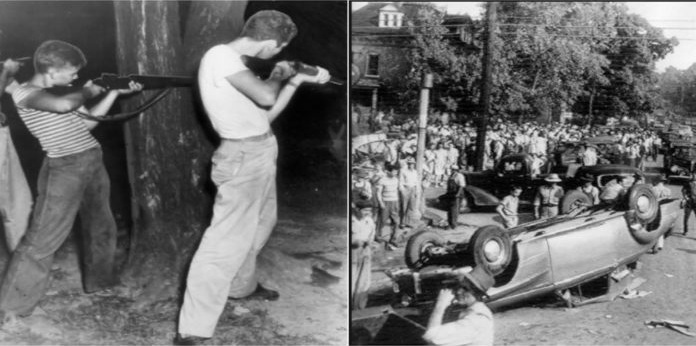Once upon a time in 1930s Tennessee, a little town called Athens was quickly taking a turn for the authoritarian.
Ambitious and unethical politicians had seized control of several counties in the state--of which Athens was a focal point--and were becoming more drunk with power every day. Men such as Mayor Edward Crump and Sheriff Paul Cantrell swept their respective elections, and though there was suspicion of ballot box tampering, it was never proven.
Cantrell quickly began abusing his position by collecting fines and fees from the locals, having his appointed deputies arrest citizens on charges of drunkenness, and fining them in excess of $300 dollars (in today's money). Arrests went as high as 115 every weekend. Gambling, drinking, and prostitution began to grow, as did kickbacks and bribery.
Paul Cantrell spent ten years as the "King of McMinn County" and possibly the most hated man therein. However, when election time came, his deputies would harass and intimidate voters, even utilizing transparent ballot boxes and forcibly removing honest poll watchers. After the ballots were cast, the boxes would be taken to the county jail and tabulated in secret. Cantrell and his friendlies always won.
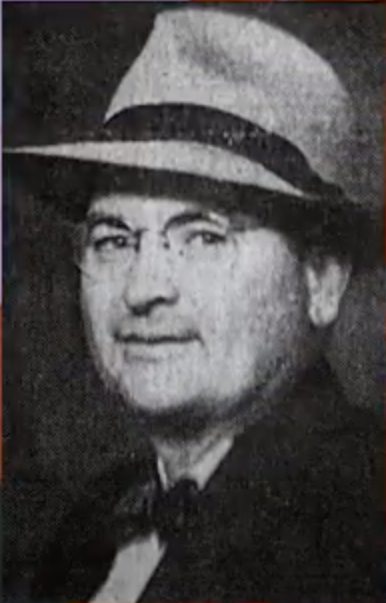
In 1940 an ally of Cantrell named George Woods was elected to the state legislature, and he got to work gerrymandering the county, reducing Cantrell's opposition by, among other things, slashing the voting precincts from 23 to 12. The Department of Justice launched an investigation into fraud, but nothing ever came of it.
By 1941 Cantrell reigned unchallenged. Although the county court attempted a counterattack by purchasing voting machines, the brazen sheriff simply abolished the whole court, and sent the machines back to "save money."
In 1942 the DOJ launched an investigation and still another in 1944, all with the same result. With World War II raging, their court gone, their vote compromised, their district gerrymandered, their federal government apathetic, and Cantrell's deputies robbing and harassing them blind, it seemed the residents of Athens, Tennessee, were without hope.
Then the soldiers came home.
Ever since the U.S. had entered World War II, the young men of Athens had departed for Europe and the Pacific, leaving very few who could challenge the corrupted establishment. But in 1945, dozens of G.I.'s, with army pay in their pockets and hearts tempered by war, returned to Athens. They didn't like what they found.
Almost immediately, the deputies began harassing the veterans and soon were targeting them specifically. But they didn't receive the kind of compliance they were used to. After fighting for years to preserve their republic, the G.I.'s were vexed to find just how badly things had collapsed back home.
Cantrell was now a state senator, and his replacement Pat Mansfield was just as despotic. By 1946 the G.I.'s were angry enough to challenge the establishment.
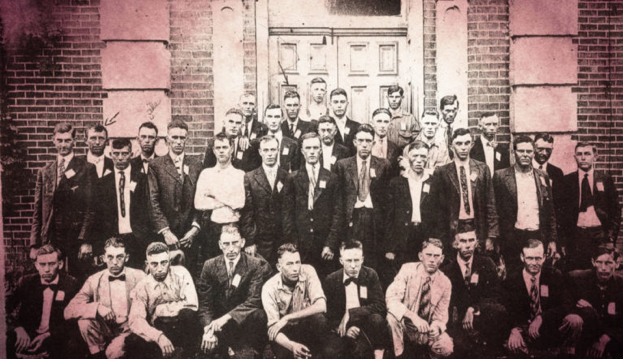
After organizing in secret, the veterans started their own nonpartisan political party and set up five opposing candidates, one of whom would be up against Cantrell himself. The campaign trail was hot, with both sides taking off the gloves.
While the G.I.'s encouraged the Athenians to stand against corruption and vote, assuring an honest and fair election, the establishment leaned more towards smear campaigns, even having the audacity to accuse the other side of election fraud. In response, the vets offered a $1,000 reward for proof. It was never claimed.
Election Day dawned August 1, and it was a brutal one. All day long, the veteran poll watchers were harassed, threatened, beaten, and even arrested as they tried to stop the obvious fraud that was occurring. Mansfield had deputized and armed over 200 loyalists, who were ignoring chain of custody, passing bribes, and even letting children vote.
Although there were many incidents of conflict throughout the day between deputies and veterans, including a hostage breakout, one should be expounded. A black man named Tom Gillespie went to vote at around 3:00 p.m., the same time the G.I.'s were appealing to and being ignored by the state and federal governments.
Tom was prevented from voting by an aggressive deputy, who insulted him, beat him, and then shot him in the back. It was the first shot of the day, though not the last. Tom survived, but his assault served to throw even more gasoline on a smoldering fire. At 4:00 p.m. the ballot box was taken by Cantrell's loyalists to the jail, and the entrance was blocked.
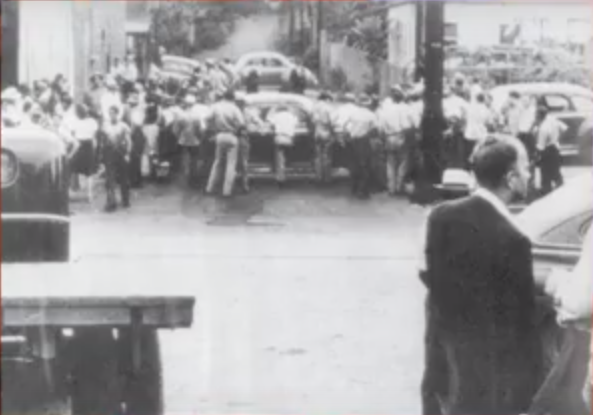
The veterans--beaten, bloodied, and demoralized--gathered at their headquarters. When a pair of deputies arrived to arrest two of them, that was the last straw. The deputies were disarmed and taken hostage. Two more deputies arrived, and then three. All were seized. Some called for blood, but the deputies were merely taken out into the woods, roughed up some, and secured to trees.
By 6:00 p.m. it seemed to be over. The crowds had returned home, and many G.I.'s had gone with them. Another election had been stolen, and there seemed little else to do. A handful of veterans remained at headquarters, and they were about to make history.
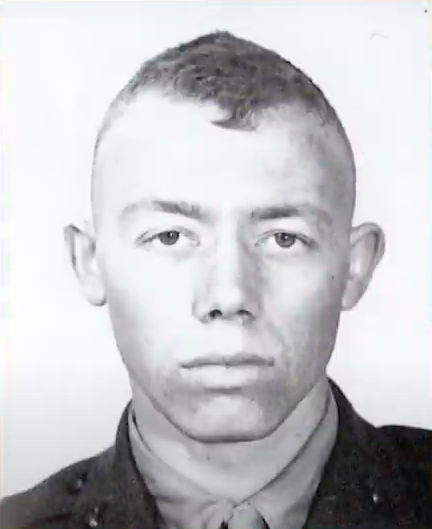 Bill White, who had joined the war as a teenager, was still fighting mad. He had spent the day witnessing corrupt men bully and harass their way to victory, but he wasn't about to throw in the towel. In a speech that George Washington would have been proud of, Bill stood up and began to rouse his fellow soldiers.
Bill White, who had joined the war as a teenager, was still fighting mad. He had spent the day witnessing corrupt men bully and harass their way to victory, but he wasn't about to throw in the towel. In a speech that George Washington would have been proud of, Bill stood up and began to rouse his fellow soldiers.
"A car drives by in the night, shoots at you, if that doesn't scare you enough, they'll set fire to your house or your barn. They'll beat up members of your family, and arrest them for no reason. Is that the kind of freedom you were supposed to be fighting for? Do you know what your rights are supposed to be? How many rights have you got left? None! Not even the right to vote in a free election. When you lose that, you've lost everything, and you're d-mned well going to lose it unless you fight! Fight the only way they understand: fire with fire!"
White's speech awakened the fighting spirit in his fellow soldiers, and they rushed down to the National Guard armory, determined to wield the last defense the Founders gave them: the Second Amendment.
As Cantrell, Mansfield, and about 50 deputies conducted their ballot stuffing, they were quite unaware that the jail was being besieged. The seasoned soldiers--armed with rifles, machine guns, and tons of ammo--took up positions at ground level and up above. The deputies stopped their work as a cry rang out.
"You d-mn b-stards, bring those ballot boxes out here, or we're going to set siege against this jail and blow it down!"
The deputies ignored the warning. Moments later, the night was lit up with gunfire. Both sides exchanged bullets, but the soldiers were more well equipped and had the high ground.
Cantrell and his thugs were soon hunkered down in their shelter, exchanging but a few shots every hour. They had called for help from the higher authorities and received none. Outside, the townspeople had gathered to witness the event, and were cheering the veterans on.
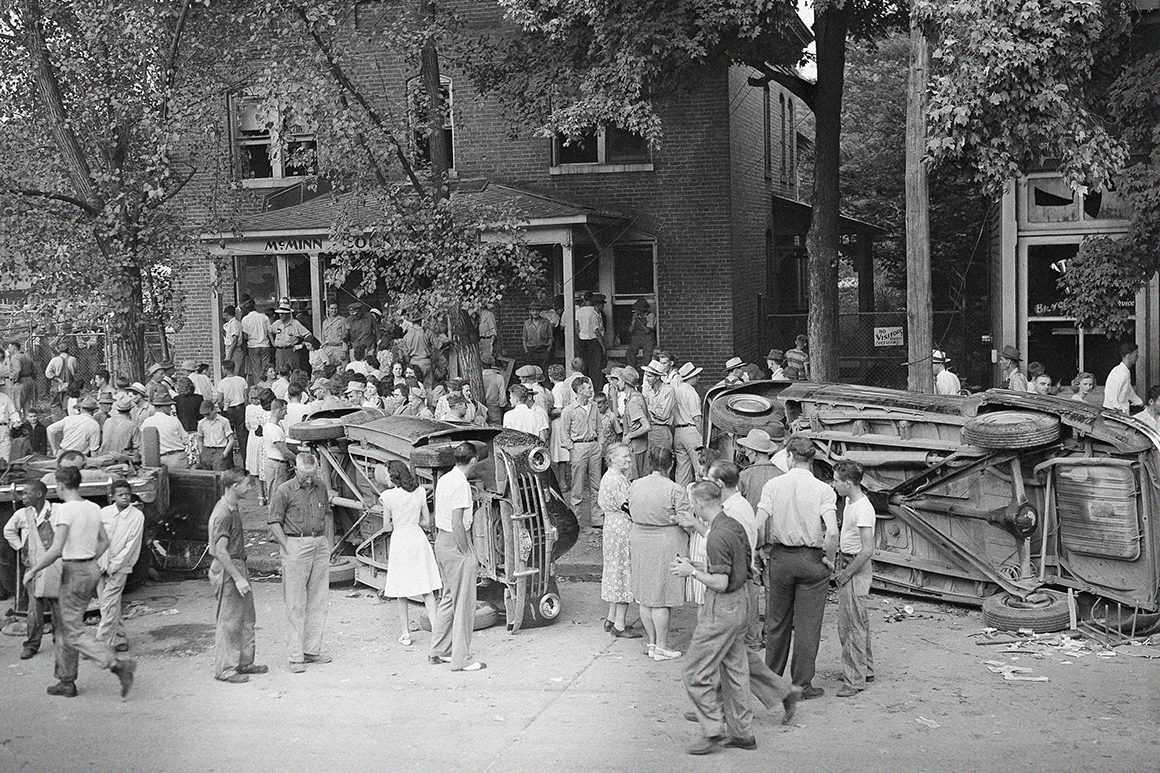
At 2:30 a.m. the G.I.'s were eager to end the battle. Running low on ammo, they sent for something with a little more kick: dynamite. While they were prepping the bundles, an ambulance arrived at the jail, which they allowed to pass, thinking injured parties were being moved. In a way, they were right.
Cantrell and Mansfield had had enough. Abandoning their own men, they slipped into the vehicle, taking their wounded pride with them, and fled. Perhaps they heard the first dynamite bundle as it obliterated the front of the jail. Three more flew forward, and the explosions rocked nearby windows.
At 3:00 a.m. the ballot boxes were fervently handed over to the victorious veterans. The surrendered deputies were attacked by a mob of long-suffering Athenians, but ironically were protected by the G.I.'s and safely incarcerated.
There had been no casualties on either side.
For the first time in a decade, Athens had an honest election. The veterans won by a landslide, and it was the beginning of the end for the corrupt political machine that had swept through the Volunteer State. Edward Crump, the man who started it all, had also been defeated.
Although the nation was at first shocked by the veterans' actions (mostly thanks to the mainstream media painting it as an insurrection), the truth soon reasserted itself. No repercussions ever came for the veterans, and they used their newfound political authority to repair all the damage inflicted by Cantrell and his goons, including repaying all fees excised over $5,000 dollars.
Liberty and self-determination had at last been restored.
Today, the people of Athens still remember the brave patriots who risked their lives for a free and fair election, as should all of America. If Bill White and his boys taught us one thing, it's that freedom is worth fighting for, and sometimes, all it takes for the establishment to crumble is for a few brave patriots to rise up and resist.
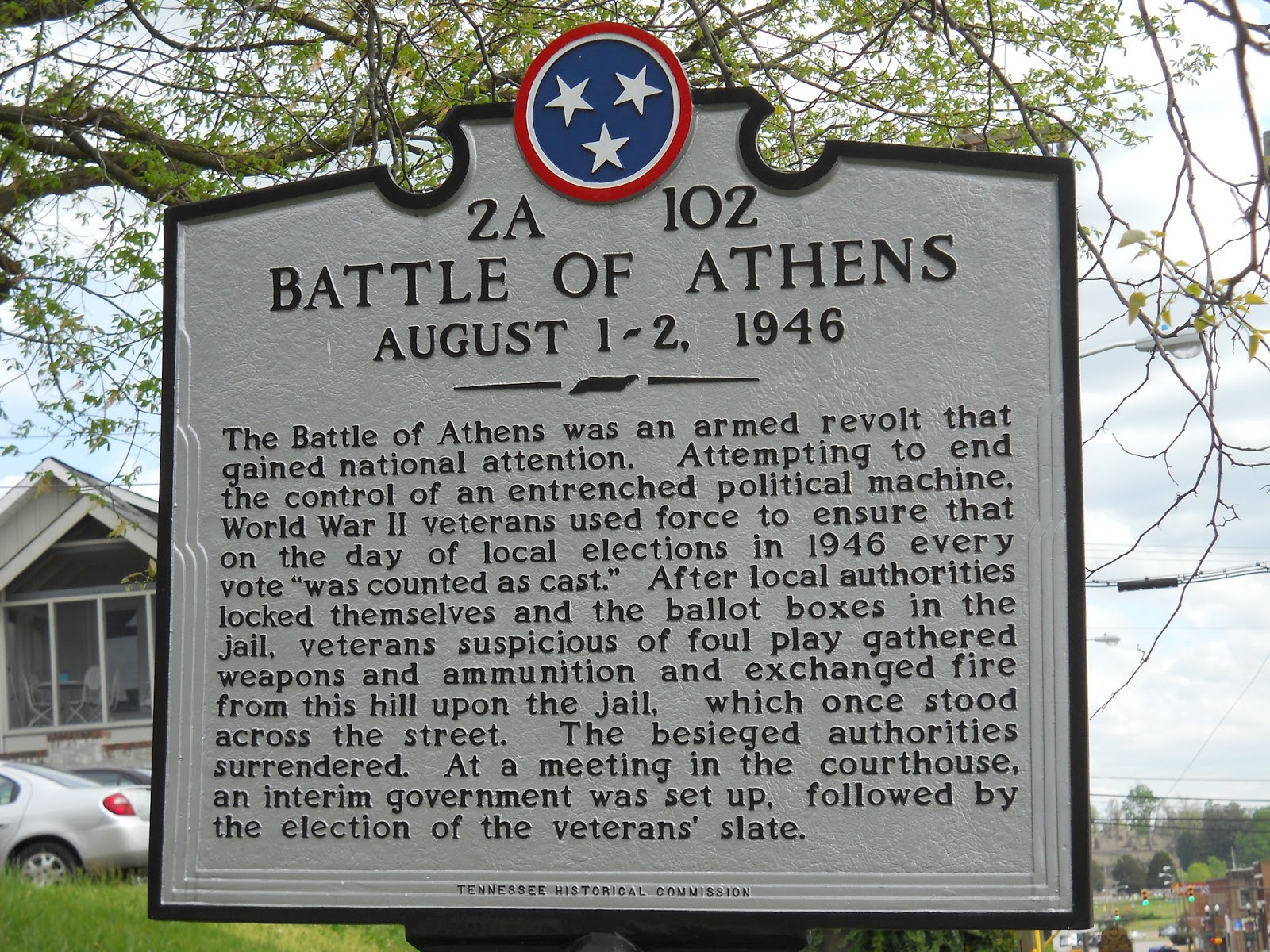
For a thorough account of the Battle of Athens, including Bill White's full speech, click here.
The Athenian patriots did what was necessary to preserve their freedom, in the only armed rebellion since 1776. Fortunately, we don't need another revolution. We have Article V.
Be a 21st Century patriot, and sign the petition to call a Convention of States!

